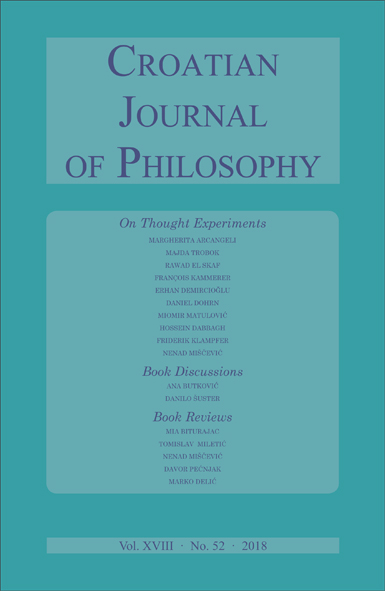Is the Antipathetic Fallacy Responsible for the Intuition that Consciousness is Distinct from the Physical?
Is the Antipathetic Fallacy Responsible for the Intuition that Consciousness is Distinct from the Physical?
Author(s): François KammererSubject(s): Epistemology, Contemporary Philosophy, Philosophy of Mind, Phenomenology, Ontology
Published by: KruZak
Keywords: Consciousness; dualism; physicalism; introspection; concepts; intuition;
Summary/Abstract: Numerous philosophers have recently tried to defend physicalism regarding phenomenal consciousness against dualist intuitions, by explaining the existence of dualist intuitions within a purely physicalist framework. David Papineau, for example, suggested that certain peculiar features of some of our concepts of phenomenal experiences (the so-called “phenomenal concepts”) led us to commit what he called the “Antipathetic Fallacy”: they gave us the erroneous impression that phenomenal experiences must be distinct from purely physical states (the “intuition of distinctness”), even though they are not. Papineau’s hypothesis has been accepted, though under other names and in different forms, by many physicalist philosophers. Pär Sundström has tried to argue against Papineau’s account of the intuition of distinctness by showing that it was subjected to counterexamples. However, Papineau managed to show that Sundström’s counterexamples were not compelling, and that they could be answered within his framework. In this paper, I want to draw inspiration from Sundström, and to put forth some refined counterexamples to Papineau’s account, which cannot be answered in the same way as Sundström’s. My conclusion is that we cannot explain the intuition of distinctness as the result of a kind of “Antipathetic Fallacy”.
Journal: Croatian Journal of Philosophy
- Issue Year: XVIII/2018
- Issue No: 52
- Page Range: 59-73
- Page Count: 15
- Language: English
- Content File-PDF

